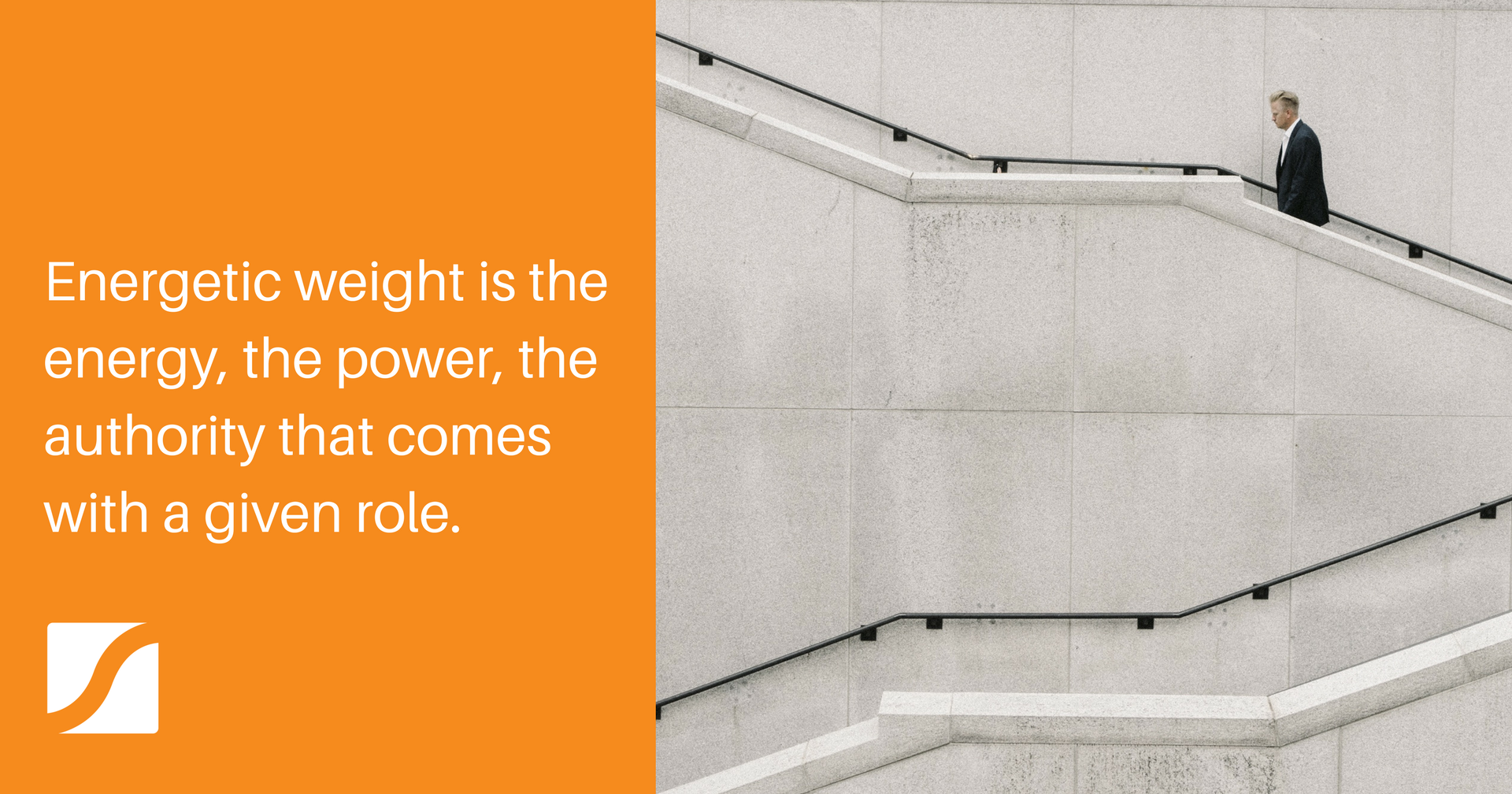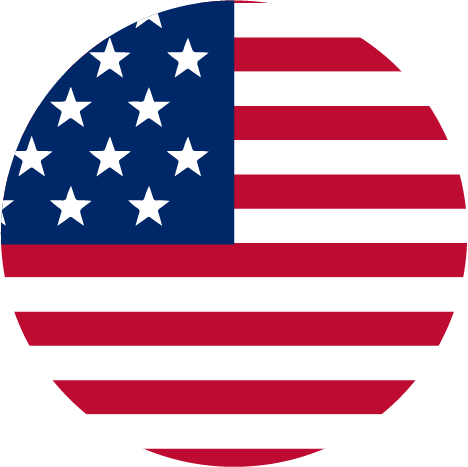Your Energetic Weight and The Art Of Showing Up

Sue, CMO at a Midwest insurance company, receives a litany of excuses from her VP Marketing when deadlines are missed. And he continues to miss them.
Dan, VP Sales at a Silicon Valley software company, runs ragged tracking the performance of his sales people and cajoling them into using the CRM. He often donates time from his own assistant to do the sales people’s CRM data entry.
Karen, VP Talent at an East coast professional services firm, has frequent challenges with one of the firm’s top consultants. He changes agreements constantly, says he doesn’t remember promises made, and even bullies her and her team.
What do all these leaders have in common?
They’re not owning their role and the power and authority it brings. They’re not standing in their energetic weight. They’re being “inappropriately small” and letting their direct reports become “inappropriately big” by default. Nature abhors a vacuum. If you don’t stand in your energetic weight either someone else will, or if you’re the leader, anarchy will result.
The Art Of Showing Up: Standing In Your Role And Its Weight
Energetic weight is the energy, the power, the authority that comes with a given role. Now the role has it, sure, but does the individual with that role choose to use it? Standing in one’s energetic weight is about standing up for what you believe is right, it’s about doing the right thing, it’s about treating others with respect and also drawing the line when others are not honoring who you are and what your role represents.
Too many leaders, in an attempt to “be nice,” to fit in, to be popular miss the opportunity to stand in their energetic weight. Then they wonder why they are mired in low value activities, when their team doesn’t perform, when it’s hard to just get things done through other people.
Think of energetic weight like a mantle you wear, or even a crown. When you accept the responsibility of a given role, you “take on” or wear an energetic mantle of sorts. You agree to hold yourself to a higher standard than your prior role perhaps, because this new role may convey more authority, carry more responsibility (financial, larger team, etc.). This does require you to ensure your team honors your “weight”.
A while back one of our junior team members made a mistake. It was a big one, and she didn’t have the capacity to clean it up. So her leader had to dive in to fix things at a level she shouldn’t have had to work at. This reduced the leader’s energetic weight. Next, since the leader’s weight had been reduced and she was now doing more Low Value Activities than she should’ve had to, this impacted her leader. Which is me. So now my energetic weight was reduced because I wasn’t getting the support I need. Make sure your direct reports and their direct reports understand energetic weight!
What’s Your Weight?
Here’s a quick quiz to provide some insight into your energetic weight. Answer Yes or No to each:
- I spend 70% or more of my time on High Value Activities.
- I hold others accountable to their commitments even if they go into victim or persecutor behavior and try to make me “the bad guy.”
- My team knows what is expected of them and they come forth when they drop the ball—rarely do I have to mention it.
- My peers know what to expect in our interactions, what’s OK and what’s not, and where the line is that they shouldn’t cross.
- My supervisor/boss/leader wouldn’t dream of delegating work to me that could be given to someone more junior.
- My team wouldn’t dream of bouncing delegated work back to me, their leader.
- I am known as fair, direct, collaborative and a straight shooter. This is why people trust me—I don’t play games, I give others credit when due, and continuously elevate and cultivate others.
- I see my role as a privilege and not an entitlement. I am here to serve my company’s mission, fulfill its vision, and honor its values, and make a positive contribution to its clients, partners, and team.
- I complete the work I am able to complete that is appropriate for my role and the amount of time I dedicate to work. I don’t self-sacrifice and work excessive hours–that would reduce my work quality and also mean I either am not delegating enough or am taking on more work than is healthy or appropriate.
- I am OK with conflict and stress. If I disagree with something I say so, in a respectful way, with the reasons why. If others try to shoot down my ideas I get curious and find out what I may have missed. If under stress I stay calm and move through it. We’re all works in progress and that’s OK. We’ll get through this together.
If you have:
0-3 Yes Answers: It’s time to get a coach or work solo on building your energetic weight. Start to uncover the stories you’re telling yourself about being seen, having power, claiming your rightful place. It may be time to rewrite them.
4-6 Yes Answers: You’re on your way. Hone your skills, expand your heart, ground your energy into the earth and be the glorious human being you are. Now comes the best part: You get to help others understand this too.
7+ Yes Answers: Optimization is your adventure now. Let’s see how mentally clear, how inwardly still, how authentic and transparent you can be. It will be of great benefit to those you have the great good fortune to work with.
The Best Kind Of Weight Gain
So what happened to the three leaders above?
Once I coached them in their energetic weight and they began to stand in it, the results were fantastic.
Sue no longer receives a litany of excuses from her VP Marketing when deadlines are missed. Because he doesn’t miss them. He understands now that this isn’t OK.
Dan no longer runs ragged tracking the performance of his sales people and cajoling them into using the CRM. They now understand that if they don’t enter the CRM data timely, they can find a job elsewhere. And his assistant now has time to implement cool sales contests to increase revenue.
Karen let the consultant prima donna go. Her team is much happier now.
How is your energetic weight? Where would you like to grow?



